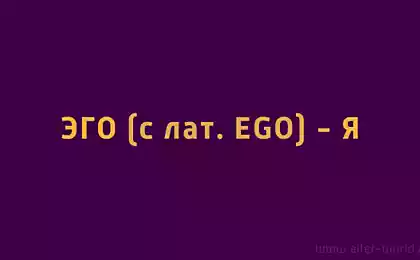393
The Ego Is the Enemy by Ryan Holiday: What this book is about and who will benefit from it

Introduction. What lies behind beautiful titles, sonorous achievements and a constant desire for recognition? For some people, this is a necessary dose of inspiration that moves them up the career ladder. For others, it is a heavy burden that inflates ego It also obscures your real understanding of your abilities. Ryan Holiday’s book “Ego Is the Enemy” explores this duality in depth. The author proposes to free oneself from the destructive influence of excessive conceit and look at one’s own personality with the look of the Stoics. What is the value of this approach? For what purpose is it necessary to constantly test yourself for modesty? And why can personal success without the ability to remain adequate turn into failure?
This article will introduce you to the key ideas of Holiday’s book, help you look deep into the “hidden biases” of our consciousness and understand how to get rid of the habit of overestimating your importance. Such honesty with oneself is already a significant step on the way to professional and personal growth.
1. A brief biography and context of the book
Ryan Holiday is an American author, marketer and public intellectual, famous for his works on ancient philosophy and modern success strategies. “The Ego is the Enemy” continues his line of research interest in Stoicism. Holiday's previous book, The Obstacle Is the Way, was widely popular among entrepreneurs and athletes for its practical exposition of the ideas of Marcus Aurelius and Seneca.
“Ego is the Enemy” was published in the English-language space a few years ago and immediately elicited a response from various groups of readers: young startups, business leaders, psychologists, the military, teachers. For all of them, it was important to think that without ego control, any talent easily degenerates into mere narcissism, and great endeavors collapse because of banal pride.

2. Main theses and key chapters
2.1. Ego as an internal enemy
The author argues that the ego is not just a healthy self-confidence, but excessive self-centeredness that prevents you from realizing objective reality. Such an ego:
- It distorts our perception of our abilities and talents.
- Makes us give in. excessive fascination
- It creates competition where cooperation is needed.
- Makes us insensitive to criticism and new ideas
2.2. Success, failure and the way forward
The book is conditionally divided into several stages: “Aspiration”, “Success” and “Failure”. Holiday shows that the ego can act equally destructively in the phase of achieving the goal, in its retention, and during the fall:
- At the stage of endeavour The ego can interfere with learning from those who are more experienced, because the person begins to believe that he already knows everything.
- To achieve success Increased sense of self-importance, which sometimes leads to conflicts and ill-conceived decisions.
- In case of failure The ego pushes us to look for the blame outside, go into the negative and deny our own mistakes.
2.3 Practical lessons for everyday life
One of the reasons for the success of the “Ego is the Enemy” was her. practicality. Holiday makes specific recommendations:
- Avoid flattering praise. If everyone likes you and everyone praises you, then you have stopped hearing constructive feedback.
- Write down. Your successes and failures every day. This way you will see the real picture, without romanticization or drama.
- Keep your eyes open. The idea of a mentor: whose views could help you resist self-deception?
- Be prepared to learn. Everyone, including those below yours. Sometimes it is the “newcomers” who bring fresh ideas.
- Periodically go into the shadows. In peace and without too much attention, it is easier to sort out priorities and see where the ego takes over.
3. For whom and why will this book be useful?
“The ego is the enemy” is not limited to a narrow sphere. It is designed to be a “therapy” for everyone who faces ambitions and difficult decisions.
- Entrepreneurs and top managers: They learn to recognize the syndrome of “general conceit” and build a more adequate relationship with the team.
- Creative professionals: Actors, writers, artists see how a culture of glorifying talent can blind and hinder development.
- Athletes: The right mental attitude often determines victory in the most difficult situations. There's no ego here.
- Students and researchers: The search for knowledge requires openness and a willingness to acknowledge gaps in your skills.
- Anyone seeking self-development: This book helps you to understand the line between healthy self-esteem and destructive narcissism.

4. Let’s look at some unexpected facts.
Fact 1. Studies of self-esteem often reveal a paradox: people with an overestimated opinion of themselves often show low effectiveness in the long run. In contrast, moderate self-criticism and willingness to learn are correlated with higher success rates.
Fact 2. In modern cognitive psychology, the term “cognitive dissonance” is described: when facts contradict our beliefs about our own exceptionalism, we experience stress. The author of the book notes that ego It prevents us from correcting false views.
Fact 3. Some of the greatest scientists, such as Isaac NewtonIn spite of the enormous achievements, they actively recognized that they were “on the shoulders of giants.” This is a vivid example of how humility allows you to maintain curiosity and openness to new things.
5. Practical tips for working with the ego
- Keep a diary: Write down not only achievements, but also doubts, shortcomings, moments when you were pointed out a mistake.
- Form a "realism group": Ask family and colleagues to be honest about your behavior.
- Learn new things regularly: Exploring an unfamiliar field returns to modesty, reminding us that there is a boundless world of knowledge.
- Do not strive for the “eternal feast of applause”: Social media, praise, media success can all turn into ego drugs.
- Reflect on mistakes: Any mistake is a chance for growth, if you admit it soberly and ask yourself the question “Why did it happen?”
6. Conclusion
Ryan Holiday’s The Ego Is the Enemy is not another “motivational pamphlet”; it is a profound and convincing work that weaves together the ideas of ancient philosophy, modern psychological research and vivid biographical examples. Its value lies in an honest approach to how we humans tend to overestimate our own importance and merit.
The author reminds us of the power of humility and constant learning. The ability to soberly look at yourself helps to avoid many problems: whether it is a block of creative self-realization, mistakes in business or destructive conflicts with others. Before blaming the circumstances, it is worth checking whether it does not interfere with us. own The ego sees the picture objectively.
Thus, Holiday’s book will be useful to anyone who values the balance between healthy self-confidence and adequate self-esteem. It leads to real success – sustainable, realized in harmony with yourself and the world around you.
Glossary
Stoicism
Philosophical doctrine, originated in ancient Greece and Rome, promoting self-control, calmness of mind and moral perseverance.
Ego
In psychology, a sense of self, which can manifest as healthy self-esteem or as destructive conceit.
Realistic view
The ability to assess the situation and their own capabilities without exaggeration or underestimation.
Cognitive dissonance
Psychological discomfort that occurs when there is a discrepancy between a person’s beliefs and real facts.
Self-observation journal
A tool for recording thoughts, emotions, achievements and mistakes for the purpose of introspection and personal growth.
Coffee: A 1,200-year journey from Ethiopian mountains to your cup
Book vs. Screen: Neurobiology of information consumption























